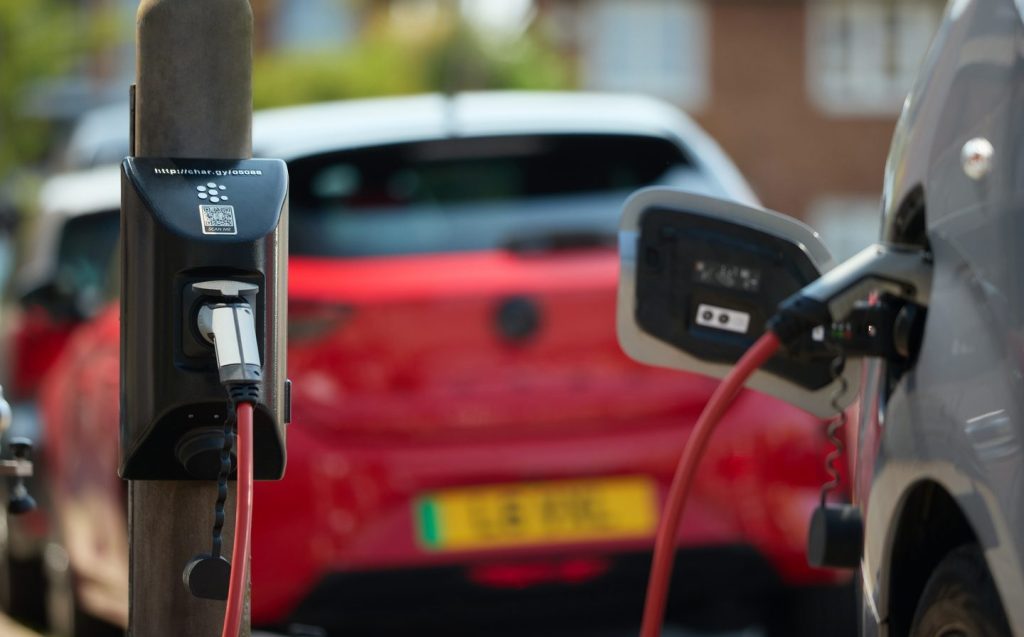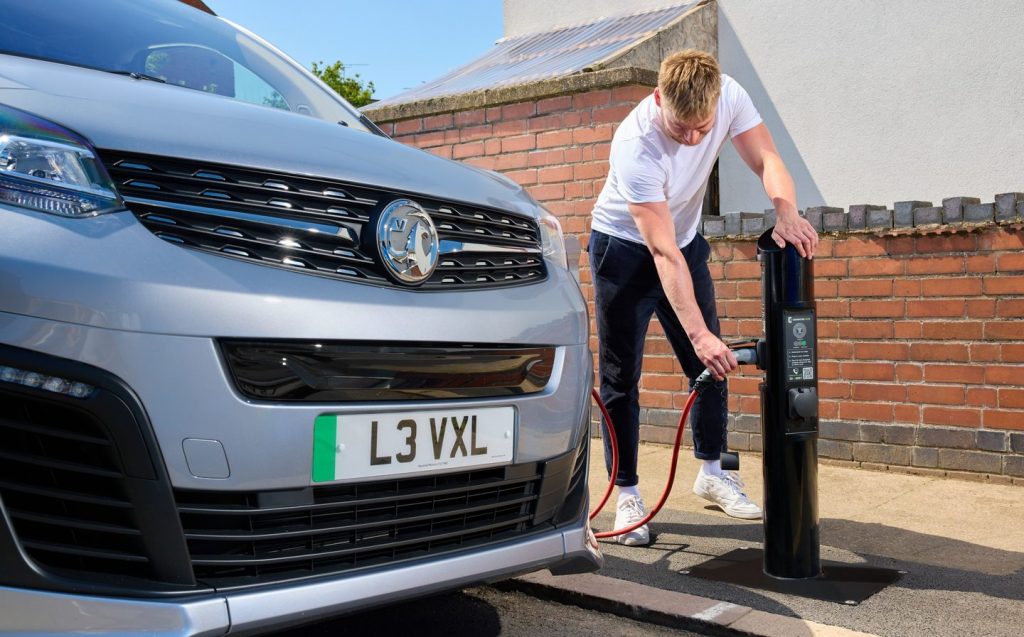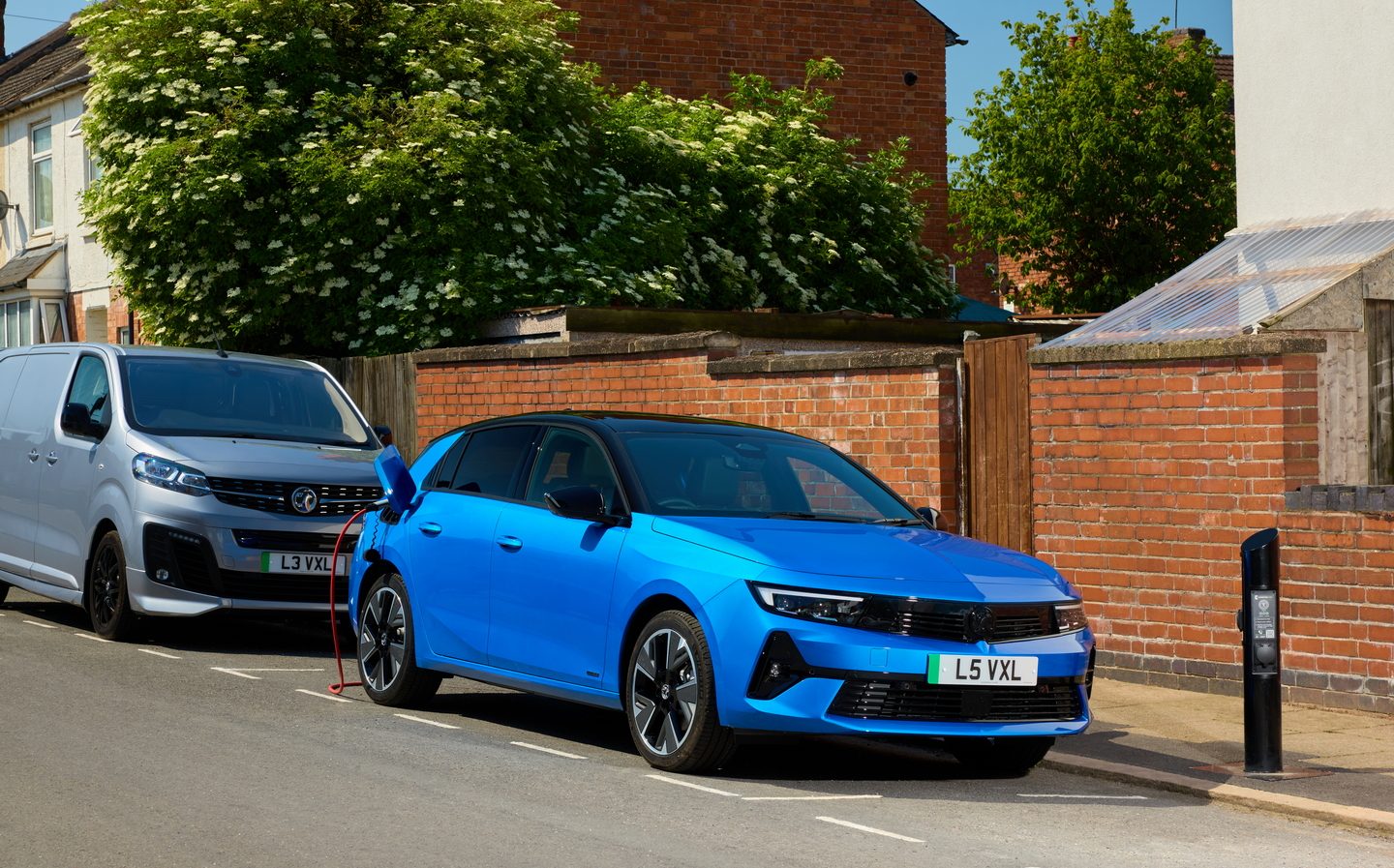Vauxhall to boost electric car on-street charging with data and funding for councils
More than two thirds of local authorities have not yet installed any on-street EV chargers
Knowing where to install on-street charger for electric vehicles has been an issue for local councils for over a decade, with some doing little more than making best guesses and sticking pins in maps. That could be a thing of the past thanks to a scheme from Vauxhall that will allow residents to register their on-street charging needs.
The Bedfordshire-based carmaker has joined forces with charging point providers to create the scheme, dubbed Electric Streets of Britain, giving local authorities the data they need to understand where true demand lies for both existing and prospective electric car drivers.
Vauxhall has also set up an “enablement fund” that helps councils “understand the scale of charging issues”, as well as the solutions available, ahead of the government’s 2030 ban on the sale of new cars powered solely by internal combustion. Hybrids follow five years later which means that by 2035 all new cars sold in the UK will have to have some form of zero-emission powertrain.
To help the carmaker roll out the initiatives, it has enlisted the help of three charge point operators: Char.gy, Connected Kerb and SureCharge.
Most councils have no strategy for charger roll-out
Vauxhall decided the scheme would be necessary after it carried out an investigation that revealed seven in every ten UK councils do not currently have a published strategy in place for residential on-street charging.
Vauxhall’s findings from a Freedom of Information application across 414 councils and local authorities in England, Wales, Scotland and Northern Ireland also showed that 69 per cent of local authorities have not yet installed any on-street chargers.

Although charging point operators are installing public devices on private land apace, with more devices installed in 2023 so far than in the whole of 2022, councils don’t seem to be fully engaged. Among the 289 local authorities that provided data up to July 1, a mere 14,188 new charging points are planned for installation this year. Some 45 per cent of councils confirmed they had no plans to install any on-street charging in 2023.
Unless there is further impetus on the growing need for charging infrastructure, particularly for drivers without access to off-street parking, some commentators believe the UK will fall short of the government’s target of 300,000 working public chargers by the end of 2030. The latest statistics from Zap Map show there are now 45,737 chargers in 26,805 locations.
Vauxhall says on-street charge points could be vital for electric vehicle uptake, citing research from the Energy Saving Trust that suggests while around 80 per cent of all electric car charging is currently done at home, around four in ten UK households do not have a driveway or access to off-street parking. That figure rises to 60 per cent in urban areas.
Drivers of electric vans set to benefit
In particular, Vauxhall expects on-street charging to be a boon for drivers of electric vans, of which it estimates four in ten are charged at home. However, with charge points on many more residential streets, Vauxhall says drivers will be able to top up their vehicles while attending jobs.
On-street charging takes numerous forms but among the most common solutions are pavement-mounted bollards and lamp post chargers, which Vauxhall says can be installed and working within as little as 30 minutes. Like conventional public charging points, vehicles can park next to the charge point and plug in, with drivers using contactless card readers or smartphone apps to pay.

London is a leader in on-street charging, with 12,708 on-street residential charging points installed to date and a further 6,397 slated for installation over the next year. When those devices are installed, the capital will have more than twice as many on-street chargers as all other regions of the UK combined.
“Accessibility to charge points near your home is critical to the transition to electric vehicle ownership in the UK,” said James Taylor, the managing director of Vauxhall. “We want to galvanise the needs and interests of everyone, from the public, to the councils and the charging operators to make sure that anyone without a driveway is part of that journey.
“We want to help educate and inform the decision-makers, and enable the installation of more chargers, more quickly.”
Related articles
- If you were interested in Vauxhall’s efforts to increase the rollout of EV chargers, you might also want to check out all the car makers’ plans for new electric models
- Keen to go electric? Here are the top 10 longest-range electric cars
- Or read Will Dron’s review of the Hyundai Ioniq 5
Latest articles
- Ferrari 12Cilindri Spider review: Heady blend of traditional and futuristic becomes even more intoxicating after lid is removed
- Skoda reveals its fastest accelerating production car yet: the electric Elroq vRS
- Carmakers fined £461m in UK and Europe for not competing over vehicle recycling
- Volkswagen Tayron 2025 review: Useful seven-seat SUV and decent PHEV — just not at the same time
- Skoda Enyaq 2025 review: Same book, different cover for electric SUV
- Lewis Hamilton wants to design a modern day Ferrari F40 with manual gearbox
- Dacia Bigster 2025 review: The ‘anti-premium’ family SUV that punches above its weight
- Your car’s worn tyres could be being burnt illegally in India, investigation reveals
- Open-top 214mph Aston Martin Vanquish Volante is world’s fastest blow-dry














